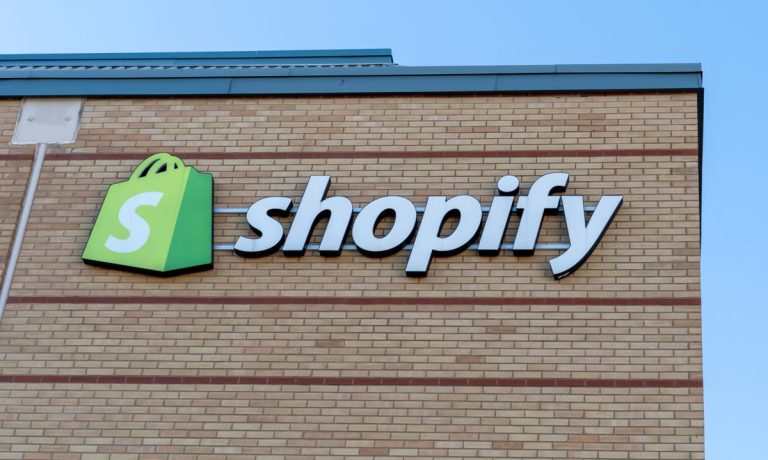Shopify’s Sale of Logistics Ops Signals Return to eCommerce as ‘Main Quest’

For Shopify, the shift is back to basics — a focus on eCommerce — and relying more fully on partners to get the goods to customers’ doorsteps.
Shopify announced Thursday (May 4) alongside its first-quarter earnings results that it would sell its logistics and fulfillment operations to Flexport, a logistics platform that already has a relationship in place with the eCommerce giant.
The Shopify operations being sold to Flexport include the last-mile delivery outfit Deliverr, which was acquired by Shopify less than a year ago.
Shifting the Focus
The deal with Flexport seems to represent a bit of sea change for Shopify, which had been building its back-end capabilities for merchants through a continuum of services. As detailed in an investor presentation, Shopify’s linkup with Flexport enabled merchants’ products to be shipped from overseas manufacturers to U.S. ports. And with Deliverr, products moved through to distribution hubs and fulfillment centers.
In a letter to employees, in which the company also announced plans to lay off 20% of company-wide staff, Shopify CEO Tobias Lütke made the distinction between the “main quest” of the company and “side quests.”
“Side quests are always distracting because the company has to split focus,” he said in the letter. “Sometimes this can be worth it, especially when engaging the side quest creates the conditions by which the main quest can become more successful.”
The main quest, Lütke detailed, “is to make commerce simpler,” and added, “building logistics infrastructure is a side quest every eCommerce entrepreneur is eventually pulled into because of the way the logistics industry works: a series of disparate players, all focused on different aspects. To run your store, you work with extremely carefully designed software. To run logistics, you will use pen, paper and phone calls a lot. And most of the time, your service providers don’t talk to each other. Coordinating them to act together is your burden.”
A ‘Worthwhile’ Endeavor
Logistics was a “worthwhile” endeavor, as Lütke wrote, and with the deal announced Thursday, Flexport becomes the preferred logistics provider for Shopify. For Flexport — in which Shopify now has a 13% equity stake — the move brings the provider more fully into last-mile logistics.
In drilling down into the company’s earnings results, Shopify noted in a filing with the Securities and Exchange Commission (SEC) that on an absolute basis, gross profit was up but decreased as a percentage of sales to 48% in the most recent quarter. That percentage had been 53% last year. The decrease, the company said in the filing, was “principally due to the inclusion of Deliverr operations in our results.”
Elsewhere in the filing — and perhaps in a nod to why the company is more fully focusing on eCommerce — the company stated that Shopify Payments comprise a revenue stream that is beneficial to top operating margins “as Shopify Payments requires significantly less sales and marketing and research and development expense” than the core subscription business.
For the three months that ended March 31, the Shopify Payments penetration rate was 56%, resulting in gross payments volume (GPV) of $27.5 billion that was facilitated using Shopify Payments. That’s up from a penetration rate of 51% resulting in GPV of $22 billion that was facilitated using Shopify Payments in the same period in 2022, per the company documents.
Narrowing the focus means the company can more fully concentrate on relatively higher margin businesses while maintaining some financial skin in the game tied to the success of fulfillment services with its stake in Flexport.
As to what comes next, Shopify said in its SEC filing: “We expect to continue to work with Flexport to optimize Shopify’s logistics offerings to support our merchants. This includes Shop Promise, our buyer-facing badge that uses real-time data to predict the delivery promise for every order and is automatically enabled in 100% of Shopify Fulfillment Network merchant storefronts.”